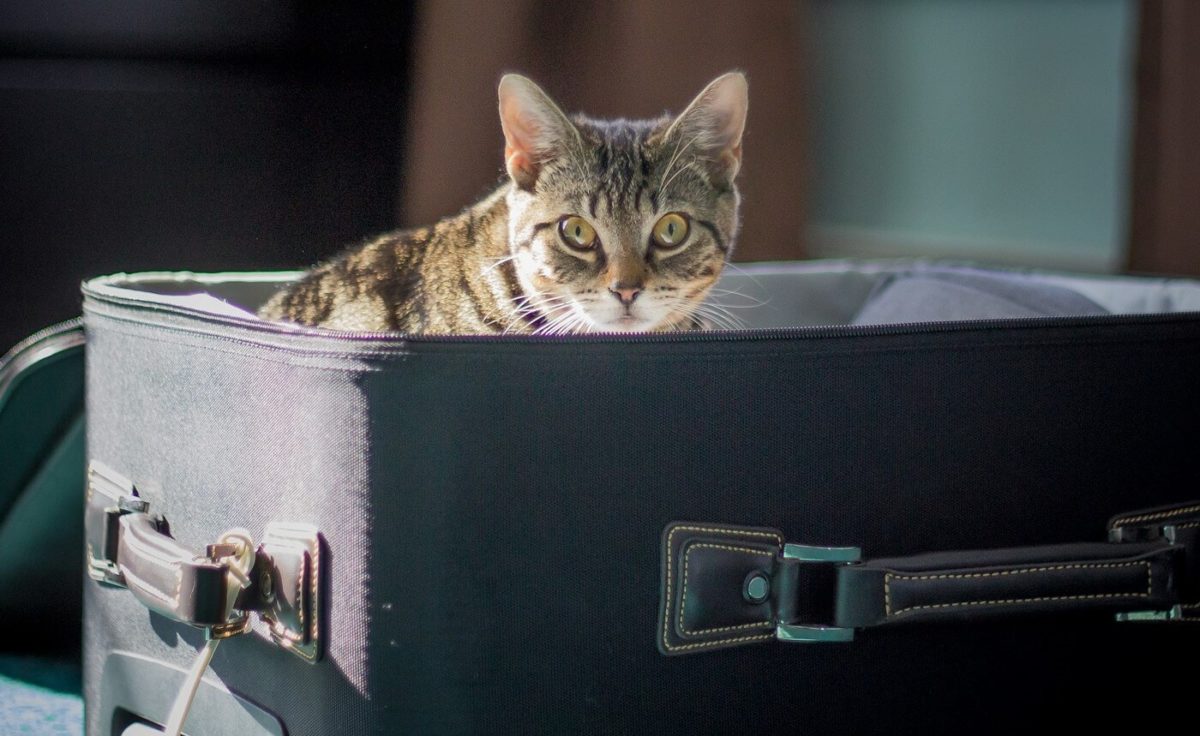Brexit! It’s a word that nobody wants to hear anymore. After three years of debate, arguments, bitterness and recrimination, the UK is no nearer leaving the EU. When your dog starts barking or your parrot begins squawking, consider that they just might be screaming “get on with it!”. Many people are now rapidly losing the will to live and it is a sorry situation. Uncertainty rules and that is a big problem.

If you are planning a trip in the next year or so, Brexit will be at the forefront of your mind, especially if you intend to travel with your pets. Deal or no deal, Brexit could impact your plans. Here’s everything you need to know about travelling with your pet, should the UK ever leave the EU. Please note that the regulations apply to cats, dogs and ferrets.
Pet travel from the UK to the EU after Brexit
The UK will become what is known as a third country if it leaves the EU without a deal. Third countries can apply to the European Commission to be listed. Pet travel details will depend on whether the UK is unlisted, Part 1 Listed or Part 2 Listed. It is likely that the UK will initially be an unlisted country.
It will be important to plan ahead if you intend to travel with your pet. You should certainly contact your vet at least four months before you intend to depart.
Pet travel if the UK becomes an unlisted country
EU pet passports issued in the UK will no longer be valid. Your pet will have to be microchipped and vaccinated against rabies before they can travel. Your pet must also have a blood sample taken and this should be done at least 30 days after their last rabies vaccination. Your vet will then send the blood sample to an EU-approved blood testing laboratory. The results of the test must show a rabies antibody level of at least 0.5 IU/ml. You will not be able to travel until three months after the blood sample was taken.
If your blood test does not show an acceptable level of antibody, your pet will require a repeat vaccination followed by another blood test 30 days later. What a nightmare!
Dogs travelling from the UK to EU listed tapeworm-free countries (Finland, Republic of Ireland and Malta) must be treated for tapeworm 24 to 120 hours before arriving in these countries.
After all of this, you will have to take your pet to an official vet no more than 10 days before travel to obtain an animal health certificate. To get the certificate you will need your pet’s vaccination certificate, your pet’s microchipping date and the blood test results. Details of tapeworm treatment should be added to the certificate by the vet. The certificate will be valid for entry to the EU for 10 days after the date of issue. It will be valid for onward travel or return to the UK for a period of four months.
You will need to arrive in the EU via a designated Travellers’ point of entry (TPE) where you will present your details of your pet’s microchip, rabies vaccination, tapeworm treatment and blood tests together with the health certificate.
Travelling to or returning to the UK with your pet (except Northern Ireland)
When visiting or returning to the UK, you will need an EU pet passport or the animal health certificate mentioned above. You will have to travel on an approved route unless you are entering the UK from Ireland.
Returning to Northern Ireland
There are strict controls on the entry of animals into Northern Ireland to prevent the introduction of rabies. Your pet and its documents will need to be checked when you travel to or return to Northern Ireland. You must ensure that this check is arranged and so you should complete an application for Import Authorisation at least 10 days before entry.
Pet Travel if the UK becomes a listed third country
Part 1 listed countries operate under the same EU Pet Travel Scheme rules as EU member states but with a different type of pet passport. However, most countries are Part 2 listed, and this means there would be different requirements for travelling with your pet.
Part 1 Listed country status
If the UK becomes a Part 1 Listed country, you will need to have your pet microchipped and vaccinated against rabies at least 21 days before travelling. You’ll also need to make sure your pet’s rabies vaccinations are kept up to date and ensure your dog has tapeworm treatment if your destination necessitates this. In addition, you will have to apply for a new document – the UK pet passport. You can use this for travel to the EU for your pet’s lifetime (or until full) as long as your pet’s rabies vaccinations are kept up to date.
Part 2 Listed country status
Travel requirements will be as per Part 1 Listed status, but you will also have to visit an official vet no more than 10 days before you travel to obtain an animal health certificate confirming that your pet is microchipped and vaccinated against rabies. Your pet will need a new certificate for each trip to the EU. You will need to enter an EU country via a designated Travellers’ port of entry (TPE).
Travelling between Northern Ireland and Southern Ireland with your pet
There are no controls on the border between Northern Ireland and the Republic of Ireland. However, it will be necessary to adhere to the requirements for travelling between the UK and the EU following Brexit. In other words, you should obtain and carry the necessary paperwork as you could be asked to produce it and you will need it if you have to seek veterinary treatment for your pet.
Confusion reigns across Europe
You won’t be surprised to hear that most pet owners are feeling confused about pet travel after Brexit. It is impossible to know what rules will apply until the terms of the UK’s departure from the EU are finalised. That is, if the UK does eventually leave. A deal could mean that the current system is retained. No deal could result in the UK becoming an unlisted, Part 1 Listed or Part 2 listed country. What a mess!

